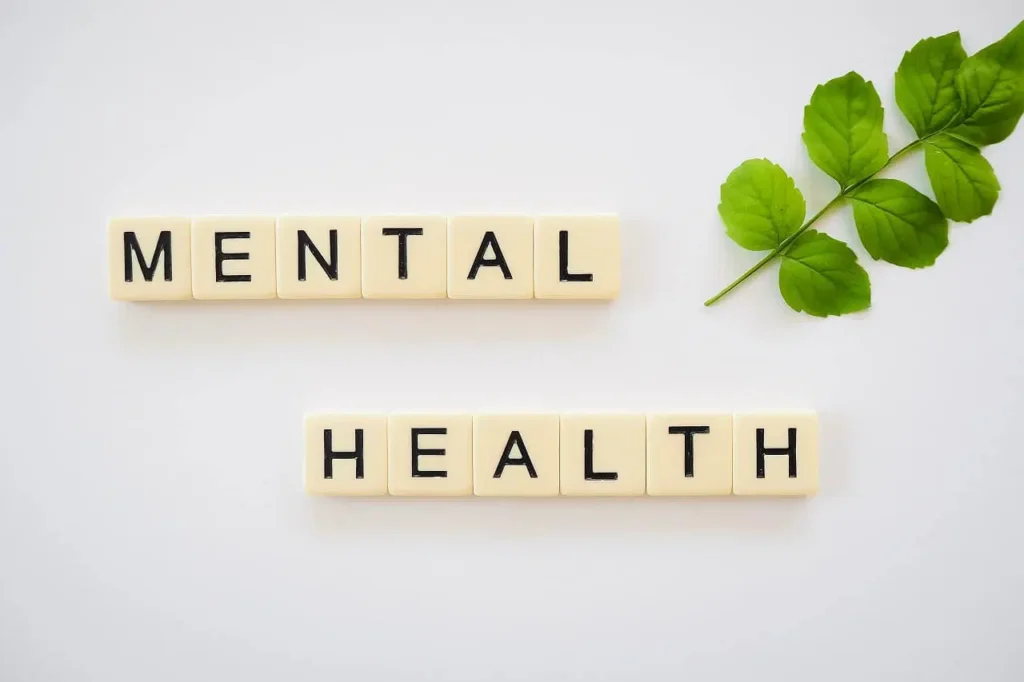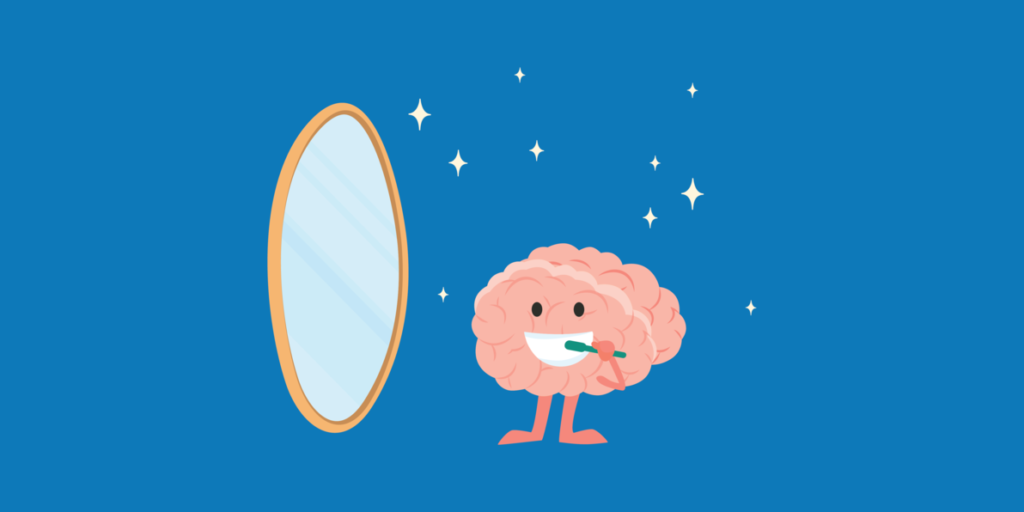Just as we practice personal hygiene to maintain physical health, we must also practice mental health hygiene to protect our emotional and psychological well-being. Mental hygiene involves daily habits that help us manage stress, regulate emotions, and maintain a positive outlook on life.
With the increasing pressures of modern life, neglecting mental health can lead to anxiety, depression, and burnout. However, maintaining good mental hygiene doesn’t have to be complicated or time-consuming. In this article, I will explore simple and effective ways to practice mental health hygiene with ease.
Key Takeaways
- Mental health hygiene is the collection of practices that allow a person to enjoy mental health while remaining in harmony with his or her socio-cultural environment.
- Mental health hygiene is critical to protecting society’s most vulnerable members, such as the young.
- Some mental health hygiene practices include starting your day with a positive mindset, practicing mindfulness and meditation, maintaining a healthy diet, and seeking professional help when needed.
What Is Mental Health?

Mental health encompasses our emotional, psychological, and social well-being. It influences how we think, feel, and act as we deal with life. It also influences how we manage stress, interact with others, and make decisions. Mental health is essential at all stages of life, from childhood and adolescence to adulthood and aging.
What Is Psychological or Mental Health Hygiene?

The psychological consequences of dealing with an ongoing burden of anxiety, depression, and stress have underlined the importance of maintaining well-being through mental hygiene. This medical practice, pioneered by American psychiatrist Clifford Whittingham Beers in 1909, specifies the collection of practices that allow a person to enjoy mental health while remaining in harmony with his or her socio-cultural environment. It addresses behaviors that are intended to prevent negative behavior, offer emotional stability, and increase quality of life.
Good mental health allows us to learn, think, engage, produce, face challenges, and present our best selves, to name a few. That is why the UN and WHO warn that its decline poses a serious social and economic problem: depression and anxiety alone cause a loss of 12 billion working days per year worldwide, resulting in annual losses of about $1 trillion to the global economy.
The Importance of Mental Health Hygiene
Mental health has become a primary issue for governments in today’s world of human and health crises, with an estimated 280 million people suffering from depression, according to the United Nations. The UN considers it critical to urgently strengthen psychological care services in light of worrying numbers from some nations, which have only two mental health workers per 100,000 people.
In these challenging times, mental health hygiene is critical to protecting society’s most vulnerable members, such as the young. Globally, one in every seven young individuals (14%) between the ages of 10 and 19 suffers from a mental condition, which accounts for approximately 13% of the worldwide disease burden in this demographic. These findings should not be underestimated, as suicide is the world’s fourth largest cause of death among people aged 15 to 29.
How to Practice Mental Health Hygiene With Ease

1. Start Your Day with a Positive Mindset
Your morning routine sets the tone for the rest of the day. Practicing positive mental habits in the morning can significantly impact your mental well-being.
How to Do It:
- Practice gratitude: Before getting out of bed, think of three things you’re grateful for.
- Use positive affirmations: Repeat empowering statements like “I am strong” or “Today is going to be a great day.”
- Avoid social media first thing in the morning: Instead of scrolling through news or social media, take a few deep breaths and start your day mindfully.
2. Prioritize Sleep and Rest
Poor sleep can negatively affect mood, concentration, and overall mental well-being. Developing healthy sleep habits is one of the easiest ways to practice mental hygiene.
How to Do It:
- Maintain a regular sleep schedule: Go to bed and wake up at the same time every day, even on weekends.
- Create a bedtime routine: Engage in relaxing activities like reading, meditating, or taking a warm bath before bed.
- Reduce screen time before sleeping: The blue light from screens can disrupt sleep patterns. Try to avoid screens at least an hour before bedtime.
3. Engage in Physical Activity
Exercise is not just good for the body—it also benefits the mind. Physical activity releases endorphins, which help reduce stress and improve mood.
How to Do It:
- Take a 30-minute walk daily: Walking in nature can be especially calming.
- Try yoga or stretching exercises: These activities help relax the mind and reduce stress.
- Engage in activities you enjoy: Dancing, swimming, or playing a sport can keep you active while also making you happy.
4. Practice Mindfulness and Meditation
Mindfulness helps you stay present and aware of your thoughts and emotions without judgment. This practice can reduce stress, improve focus, and promote emotional balance.
How to Do It:
- Start with deep breathing: Inhale deeply for four seconds, hold for four seconds, and exhale for four seconds.
- Try guided meditation apps: Apps like Headspace or Calm can help you establish a mindfulness routine.
- Practice mindful eating: Focus on the flavors and textures of your food instead of eating while distracted.
5. Maintain a Healthy Diet
What you eat affects how you feel. A well-balanced diet supports brain function, stabilizes mood, and reduces anxiety and depression symptoms.
How to Do It:
- Eat a variety of whole foods: Include fruits, vegetables, whole grains, and lean proteins in your meals.
- Limit processed and sugary foods: High sugar intake can lead to energy crashes and mood swings.
- Stay hydrated: Dehydration can lead to fatigue and irritability. Aim to drink at least 8 glasses of water per day.
6. Set Boundaries and Manage Stress
Setting boundaries is essential for protecting your mental space and avoiding burnout.
How to Do It:
- Learn to say no: Overcommitting can lead to unnecessary stress and exhaustion.
- Prioritize self-care: Set aside time for activities that bring you joy and relaxation.
- Recognize your stress triggers: Understanding what causes you stress can help you manage it better.
7. Socialize and Build Meaningful Connections
Humans are social beings, and having supportive relationships is crucial for mental well-being.
How to Do It:
- Stay in touch with loved ones: Call or meet friends and family regularly.
- Join a community or support group: Being part of a group can provide emotional support and encouragement.
- Practice active listening: When engaging with others, give them your full attention and show empathy.
8. Take Breaks and Unplug from Technology
Constant exposure to screens and social media can lead to mental fatigue and anxiety. Taking regular breaks helps refresh the mind.
How to Do It:
- Follow the 20-20-20 rule: Every 20 minutes, look away from your screen for 20 seconds at something 20 feet away.
- Schedule screen-free time: Spend at least an hour a day away from digital devices.
- Engage in offline hobbies: Reading, painting, or playing an instrument can be great ways to relax.
9. Develop a Journaling Habit
Writing down your thoughts can help you process emotions, identify stressors, and track progress in your mental well-being.
How to Do It:
- Keep a gratitude journal: Write three things you’re grateful for each day.
- Express your thoughts freely: Journaling can be a form of self-therapy where you release bottled-up emotions.
- Set personal goals: Write down short-term and long-term goals to keep yourself motivated.
10. Seek Professional Help When Needed
There is no shame in seeking help from a mental health professional. Therapy and counseling can provide valuable tools to cope with stress and emotional struggles.
How to Do It:
- Recognize when you need help: Persistent sadness, anxiety, or overwhelming stress are signs to seek professional guidance.
- Find a therapist that suits your needs: Whether it’s in-person or online therapy, find a professional you feel comfortable with.
- Join support groups: Talking to others who share similar struggles can be incredibly healing.
11. Cultivate a Growth Mindset
A growth mindset allows you to view challenges as opportunities for learning rather than failures.
How to Do It:
- Embrace challenges: Instead of fearing failure, see it as a stepping stone to improvement.
- Practice self-compassion: Be kind to yourself when you make mistakes.
- Celebrate small wins: Acknowledge every step of progress, no matter how small.
12. Engage in Activities That Spark Joy
Doing things that make you happy can significantly improve your mental health.
How to Do It:
- Revisit childhood hobbies: If you used to love painting or playing an instrument, pick it up again.
- Laugh more: Watch comedies or spend time with people who make you smile.
- Plan regular self-care days: Dedicate time to relax and recharge.
13. Embrace Nature and Outdoor Activities
Spending time in nature has been scientifically proven to reduce stress and improve mood.
How to Do It:
- Take a walk in the park: Even 15 minutes outside can make a difference.
- Try gardening: Connecting with nature through gardening can be therapeutic.
- Go on nature retreats: Camping or hiking can provide a mental reset.
What Are the Principles of Mental Hygiene?
Mental hygiene principles focus on promoting and preserving mental health through various strategies, including understanding one’s emotions, managing stress, building healthy relationships, and promoting mental well-being.
How Does Hygiene Affect Your Mental Health?
Hygiene practices, or lack thereof, can significantly impact mental health, with poor hygiene potentially leading to social isolation, low self-esteem, and even exacerbating existing mental health conditions, while good hygiene can boost mood and self-care.
What Are Bad Hygiene Habits?
Bad hygiene can be classified into two types: personal hygiene and environmental hygiene. Here are examples of both types.
Bad personal hygiene:
- Not bathing frequently.
- Not cleaning teeth,
- not washing hands before or after eating,
- and not washing hands after using the toilet.
Poor Environmental Hygiene:
- Not cleaning bacteria-prone areas, such as the kitchen and bathroom,
- Leaving garbage sitting out,
- improperly cooking or storing food, and
- infrequent laundry (clothes and bedding).
Signs of poor hygiene include body odor, unclean or untidy hair, bad breath, tooth decay, gingivitis, soiled clothing, dirty and untrimmed fingernails and toenails.
Conclusion
Practicing mental health hygiene doesn’t have to be complicated. By incorporating simple daily habits, such as maintaining a positive mindset, exercising, setting boundaries, and seeking professional help when needed, you can build a healthier mind with ease.
Mental hygiene is just as important as physical health, and with consistent practice, you can achieve emotional well-being and a balanced life. Start small, be patient with yourself, and remember that every step you take towards mental wellness matters.
What mental health hygiene practices work best for you? Share your thoughts in the comments!
Related Articles
- How to Deal with Mental Health at Work?
- How to Prevent Mental Health Problems
- 51+ Super Positive and Inspiring Mental Health Quotes






